*Quick Disclaimer: This post is super long and I laughed at myself writing this. So feel free to laugh at me while reading this.*
 When people initially look at me, they assume that I listen to Taylor Swift, go to Starbucks everyday, and am super rich. Why do people think this? To be honest, I’m still asking myself this everyday, because none of those assumptions are true. I hate Taylor Swift. I hate coffee and prefer tea without sugar. Let’s be honest, if I was rich, I would have started a company, like Paris Hilton did, and just get richer from there. I wouldn’t come to UT. (I’m not hating on UT, I love it here!) My name is Ashley Bedford and I belong to “typical” and “non-typical” communities.
When people initially look at me, they assume that I listen to Taylor Swift, go to Starbucks everyday, and am super rich. Why do people think this? To be honest, I’m still asking myself this everyday, because none of those assumptions are true. I hate Taylor Swift. I hate coffee and prefer tea without sugar. Let’s be honest, if I was rich, I would have started a company, like Paris Hilton did, and just get richer from there. I wouldn’t come to UT. (I’m not hating on UT, I love it here!) My name is Ashley Bedford and I belong to “typical” and “non-typical” communities.
 If someone were to go on my Spotify, they would find a bunch of Hip Hop and R&B music. Since I am African American, this music choice should be a given, right? Actually, no. When I was a young girl, I would go places with my friends in their parent’s car and when they turned on the radio, a hip hop song would come on. 102.3 The BEAT was the radio station of choice. I just started moving to the rhythm and fell in love with how upbeat the music was. I never paid any mind to the lyrics back then, but nowadays I try to be more attentive to it. Keyword, try. I also fell in love with Hip Hop music, because my friends and I could dance to it. Whenever I would sleep over at Haley’s house, my best friend, we would rant about our lives. Then, we’d turn on the jams and completely lose ourselves in the music by dancing. People look at me and think, “Oh, she’s too pure for Hip Hop music,” because of how proper I speak and act. I don’t ever understand the assumptions people come up with, but I just roll with the punches. Hip hop music is a pretty big part of my life. I listen to it when I’m doing homework, when I’m cleaning, when I’m mad, and when I’m bored. Without it, I would have many boring, uneventful days. Being African American does not limit my music taste. I listen to alternative rock, bandas, salsa, french, and remixed music. I’ll even play jazz and classical music sometimes. Race has nothing to do with music taste.
If someone were to go on my Spotify, they would find a bunch of Hip Hop and R&B music. Since I am African American, this music choice should be a given, right? Actually, no. When I was a young girl, I would go places with my friends in their parent’s car and when they turned on the radio, a hip hop song would come on. 102.3 The BEAT was the radio station of choice. I just started moving to the rhythm and fell in love with how upbeat the music was. I never paid any mind to the lyrics back then, but nowadays I try to be more attentive to it. Keyword, try. I also fell in love with Hip Hop music, because my friends and I could dance to it. Whenever I would sleep over at Haley’s house, my best friend, we would rant about our lives. Then, we’d turn on the jams and completely lose ourselves in the music by dancing. People look at me and think, “Oh, she’s too pure for Hip Hop music,” because of how proper I speak and act. I don’t ever understand the assumptions people come up with, but I just roll with the punches. Hip hop music is a pretty big part of my life. I listen to it when I’m doing homework, when I’m cleaning, when I’m mad, and when I’m bored. Without it, I would have many boring, uneventful days. Being African American does not limit my music taste. I listen to alternative rock, bandas, salsa, french, and remixed music. I’ll even play jazz and classical music sometimes. Race has nothing to do with music taste.
I also belong to the community of conservatives. Many people would not think that I’m a conservative person, at first, because I’m young. The general stereotype is that all young people are “young, wild, and free” liberals. In my case, only being young fits me.
Starting at the age of three, I was influenced by my father who worked tediously to instill core values and morals in me. To this day, I keep many of those values and morals dear to my heart. He taught me during car rides and at different restaurants, that God should be number one in my life and the world that we live in is reverting to evil, like Sodom and Gomorrah. This is going to sound super crazy to some people, but personally, I’ve found that most things my dad tells me are true. He would always give me bible lessons. Through those lessons, I would uncover truths about my life and the world around me that I would have never discovered, if it wasn’t for him showing me. I get a lot of my observing and picky tendencies from him. He always taught me about the power of observation and how shifts in our society lead back to the bible.

It all sounds like conspiracy theories to others, but it’s very real to me. My dad told me that our world is full of lies and deceitful behavior, which directly contributes to me being more conservative than liberal. I used to shrug him off, but one day I found evidence to backup his claims. It was pretty mind-blowing! For example, many people believe that most of the food we eat is acceptable for our bodies and couldn’t harm a fly. I discovered, through research, that the mass production of corn in our foods, GMOs, are not good for us and that there are various carcinogens in everything we eat. Basically, we are killing each other off (mainly businesses that manufacture these cancer causing items) and the medical industry is profiting on people who are getting cancer. It’s a repetitive vicious cycle, actually. People typically shrug me off, but if you look close enough, our world isn’t the “rainbows and sunshine” place that everyone makes it out to be.
I went to Golden Coral one day, paid to enter the building, got food, then sat down. Well when I got up to get more food, I took a minute or two to just observe my surroundings. I saw a bunch of people scarfing down food, like it was a “dog-eat-dog” environment. This directly ties to the book of Revelations and the end of the world. Tying that back to the earlier example, carcinogens lie in that food. Too much of it could potentially lead you to a hospital bed. I worked on limiting my portions ever since.
Enough about my “crazy” conspiracies.
Just because I classify with the conservative group, does not mean that I don’t share anything with liberals. I’m pretty liberal about the death penalty issue. I think it should be abolished, because I’m all for emphasizing the importance of life and living. I’m also liberal about the environment and gun control issues. We should care about our environment, because we live here. We should also abolish guns for citizens, because I promote peace. There is power in our hands and what we put in it should matter. If you put a pencil in it, that hand has the power to write beautiful, uplifting words. If you put a gun in our hands, that gives us the power to end the lives of others by force. Lives are precious, not something to be toyed with. Of course, one could say, “words are powerful too and one could write bad words that could lead to someone’s death,” true, but a gun is more direct. If you pull the trigger, you could end a life, against their will, right on the spot. If you write something harmful, it is up to that person to react positively or negatively.
 I also haven’t experienced many things that society deems as bad to do, like smoking and drinking alcohol. It’s just a personal decision that I made to not participate in these things. I personally don’t think others should participate in them either, because they have seriously negative effects on our bodies and brains. Everyone can have a great time without a stimulant to aid them. I feel that the body is a very important part of us and we should treat it with care. This has a lot to do with how conservative I am as well.
I also haven’t experienced many things that society deems as bad to do, like smoking and drinking alcohol. It’s just a personal decision that I made to not participate in these things. I personally don’t think others should participate in them either, because they have seriously negative effects on our bodies and brains. Everyone can have a great time without a stimulant to aid them. I feel that the body is a very important part of us and we should treat it with care. This has a lot to do with how conservative I am as well.
Also, just because I have conservative views does not mean that I will keep these views forever. I have conflicting views sometimes, but recently I’ve been digging into the root of my beliefs and am starting to define them as they are now. Many people think I’m mature because I observe our world and respond differently than many other young people do. I take that as a compliment, but i’m still a work in progress, just like everyone else. I’m certain that Hip Hop music and God don’t match, judge me as you please. I’m certain that many of you have contradicting actions and values in you lives as well.
 Regarding hip hop music, I recently got into DJ-ing and have been looking into the Texas Electronic Music Club. There, I could learn how to take hip hop music and make catchy remixes from them, because I also love remixes too. I could find more experienced people who would be willing to show me the basics of DJ-ing, like how to make a loop. I’m sure that many students are talented in making remixes. To top it off, my dad used to DJ and make new beats. He gave up wanting to be a famous DJ in the nineties, but that’s a another story for another day. https://utexas.collegiatelink.net/organization/texaselectronicmusicclub
Regarding hip hop music, I recently got into DJ-ing and have been looking into the Texas Electronic Music Club. There, I could learn how to take hip hop music and make catchy remixes from them, because I also love remixes too. I could find more experienced people who would be willing to show me the basics of DJ-ing, like how to make a loop. I’m sure that many students are talented in making remixes. To top it off, my dad used to DJ and make new beats. He gave up wanting to be a famous DJ in the nineties, but that’s a another story for another day. https://utexas.collegiatelink.net/organization/texaselectronicmusicclub
I found a club called, “Young Conservatives of Texas – University Chapter”. It is a club I could go to and have people who believe in the same principles that I do. I could have a student to talk to you and relate to me on political issues. I could even have someone to debate with, because I share many liberal ideals as well, just not as many as conservative ideals. There I could formulate new opinions and aspects on different issues. I could also continually educate myself on “hot topics”.
https://utexas.collegiatelink.net/organization/youngconservativesoftexas/about
– Blog Post 2 written by Ashley Bedford

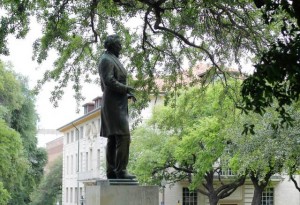
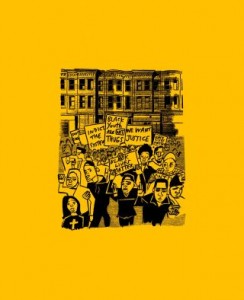

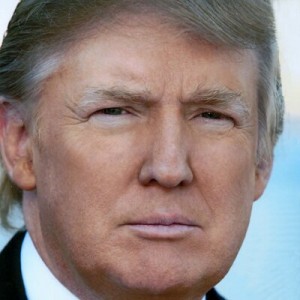
 The sarcasm in “our great African American President” is very apparent and comes off as a racist notion from Trump (Trump). With his twitter post, he means to say, “If the president is so great, why did he not end the rioting and positively tried to impact that city, as opposed to allowing policemen to guard the area? Why did he allow the citizens, specifically people of color to ruin the city with riots?” Our President, Barack Obama, is indeed African American. Race should not have been a factor to bring up if one was to speak about this issue. Race has nothing to do with leadership effectiveness. One could be white, black, green, or blue and still be a great or even bad leader. Condoleezza Rice is an African American woman who was deemed one of “America’s Most Influential People” by Forbes because of her political and military related contributions to society promoting peace between many different nations. Sonia Sotomayor is the first Latina to be promoted to the Supreme Court. She impacted society through her votes on major issues in defining major laws in the Constitution. Her being a Puerto Rican and American has not affected her ability to serve as a Supreme Court Justice in our country. Our president has served two presidential terms, unlike Trump. Which shows that he knows exactly what he is doing and what he can and cannot do, regarding this issue. He also has so many issues that pull on him daily, so for Trump to call him out on this one issue when clearly Trump hasn’t done anything to reduce his issue, makes him look like a joke to others.
The sarcasm in “our great African American President” is very apparent and comes off as a racist notion from Trump (Trump). With his twitter post, he means to say, “If the president is so great, why did he not end the rioting and positively tried to impact that city, as opposed to allowing policemen to guard the area? Why did he allow the citizens, specifically people of color to ruin the city with riots?” Our President, Barack Obama, is indeed African American. Race should not have been a factor to bring up if one was to speak about this issue. Race has nothing to do with leadership effectiveness. One could be white, black, green, or blue and still be a great or even bad leader. Condoleezza Rice is an African American woman who was deemed one of “America’s Most Influential People” by Forbes because of her political and military related contributions to society promoting peace between many different nations. Sonia Sotomayor is the first Latina to be promoted to the Supreme Court. She impacted society through her votes on major issues in defining major laws in the Constitution. Her being a Puerto Rican and American has not affected her ability to serve as a Supreme Court Justice in our country. Our president has served two presidential terms, unlike Trump. Which shows that he knows exactly what he is doing and what he can and cannot do, regarding this issue. He also has so many issues that pull on him daily, so for Trump to call him out on this one issue when clearly Trump hasn’t done anything to reduce his issue, makes him look like a joke to others.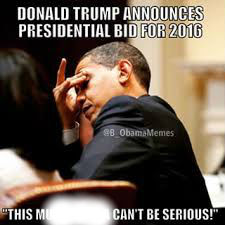 Blogger and Television star, Perez Hilton, responded to Trump’s post, “
Blogger and Television star, Perez Hilton, responded to Trump’s post, “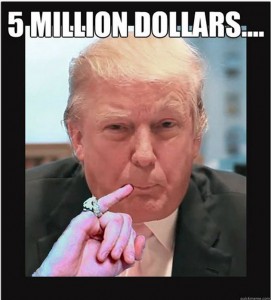 rioting in Baltimore and “positively” impacted the citizens, also known as “thugs”, in this community (Trump). Through other tweets, From a Republican standpoint, Trump argues that the highest taxpayers, high class citizens, are expected to rebuild the city destroyed by these “thugs” (Trump). He blames the law enforcement officials for allowing Baltimore riots to happen. He bashes the Mayor of Baltimore, Stephanie Rawlings-Blake, because she also allowed this rioting to happen as a retaliative cry for help.Trump also gives advice to President Obama to bring “both sides together” in Baltimore, basically calling for peace, in which he attempts to redirect the president of the United States on this issue (Trump). Donald Trump speaks for the affluent, potentially Caucasian, American who feels that Obama has not done enough on this issue and wishes that he would have contained the city better so that the wealthy elites don’t have to go out of their way to pay for the damage that is done.
rioting in Baltimore and “positively” impacted the citizens, also known as “thugs”, in this community (Trump). Through other tweets, From a Republican standpoint, Trump argues that the highest taxpayers, high class citizens, are expected to rebuild the city destroyed by these “thugs” (Trump). He blames the law enforcement officials for allowing Baltimore riots to happen. He bashes the Mayor of Baltimore, Stephanie Rawlings-Blake, because she also allowed this rioting to happen as a retaliative cry for help.Trump also gives advice to President Obama to bring “both sides together” in Baltimore, basically calling for peace, in which he attempts to redirect the president of the United States on this issue (Trump). Donald Trump speaks for the affluent, potentially Caucasian, American who feels that Obama has not done enough on this issue and wishes that he would have contained the city better so that the wealthy elites don’t have to go out of their way to pay for the damage that is done.

 When people initially look at me, they assume that I listen to Taylor Swift, go to Starbucks everyday, and am super rich. Why do people think this? To be honest, I’m still asking myself this everyday, because none of those assumptions are true. I hate Taylor Swift. I hate coffee and prefer tea without sugar. Let’s be honest, if I was rich, I would have started a company, like Paris Hilton did, and just get richer from there. I wouldn’t come to UT. (I’m not hating on UT, I love it here!) My name is Ashley Bedford and I belong to “typical” and “non-typical” communities.
When people initially look at me, they assume that I listen to Taylor Swift, go to Starbucks everyday, and am super rich. Why do people think this? To be honest, I’m still asking myself this everyday, because none of those assumptions are true. I hate Taylor Swift. I hate coffee and prefer tea without sugar. Let’s be honest, if I was rich, I would have started a company, like Paris Hilton did, and just get richer from there. I wouldn’t come to UT. (I’m not hating on UT, I love it here!) My name is Ashley Bedford and I belong to “typical” and “non-typical” communities. If someone were to go on my Spotify, they would find a bunch of Hip Hop and R&B music. Since I am African American, this music choice should be a given, right? Actually, no. When I was a young girl, I would go places with my friends in their parent’s car and when they turned on the radio, a hip hop song would come on. 102.3 The BEAT was the radio station of choice. I just started moving to the rhythm and fell in love with how upbeat the music was. I never paid any mind to the lyrics back then, but nowadays I try to be more attentive to it. Keyword, try. I also fell in love with Hip Hop music, because my friends and I could dance to it. Whenever I would sleep over at Haley’s house, my best friend, we would rant about our lives. Then, we’d turn on the jams and completely lose ourselves in the music by dancing. People look at me and think, “Oh, she’s too pure for Hip Hop music,” because of how proper I speak and act. I don’t ever understand the assumptions people come up with, but I just roll with the punches. Hip hop music is a pretty big part of my life. I listen to it when I’m doing homework, when I’m cleaning, when I’m mad, and when I’m bored. Without it, I would have many boring, uneventful days. Being African American does not limit my music taste. I listen to alternative rock, bandas, salsa, french, and remixed music. I’ll even play jazz and classical music sometimes. Race has nothing to do with music taste.
If someone were to go on my Spotify, they would find a bunch of Hip Hop and R&B music. Since I am African American, this music choice should be a given, right? Actually, no. When I was a young girl, I would go places with my friends in their parent’s car and when they turned on the radio, a hip hop song would come on. 102.3 The BEAT was the radio station of choice. I just started moving to the rhythm and fell in love with how upbeat the music was. I never paid any mind to the lyrics back then, but nowadays I try to be more attentive to it. Keyword, try. I also fell in love with Hip Hop music, because my friends and I could dance to it. Whenever I would sleep over at Haley’s house, my best friend, we would rant about our lives. Then, we’d turn on the jams and completely lose ourselves in the music by dancing. People look at me and think, “Oh, she’s too pure for Hip Hop music,” because of how proper I speak and act. I don’t ever understand the assumptions people come up with, but I just roll with the punches. Hip hop music is a pretty big part of my life. I listen to it when I’m doing homework, when I’m cleaning, when I’m mad, and when I’m bored. Without it, I would have many boring, uneventful days. Being African American does not limit my music taste. I listen to alternative rock, bandas, salsa, french, and remixed music. I’ll even play jazz and classical music sometimes. Race has nothing to do with music taste.
 I also haven’t experienced many things that society deems as bad to do, like smoking and drinking alcohol. It’s just a personal decision that I made to not participate in these things. I personally don’t think others should participate in them either, because they have seriously negative effects on our bodies and brains. Everyone can have a great time without a stimulant to aid them. I feel that the body is a very important part of us and we should treat it with care. This has a lot to do with how conservative I am as well.
I also haven’t experienced many things that society deems as bad to do, like smoking and drinking alcohol. It’s just a personal decision that I made to not participate in these things. I personally don’t think others should participate in them either, because they have seriously negative effects on our bodies and brains. Everyone can have a great time without a stimulant to aid them. I feel that the body is a very important part of us and we should treat it with care. This has a lot to do with how conservative I am as well.